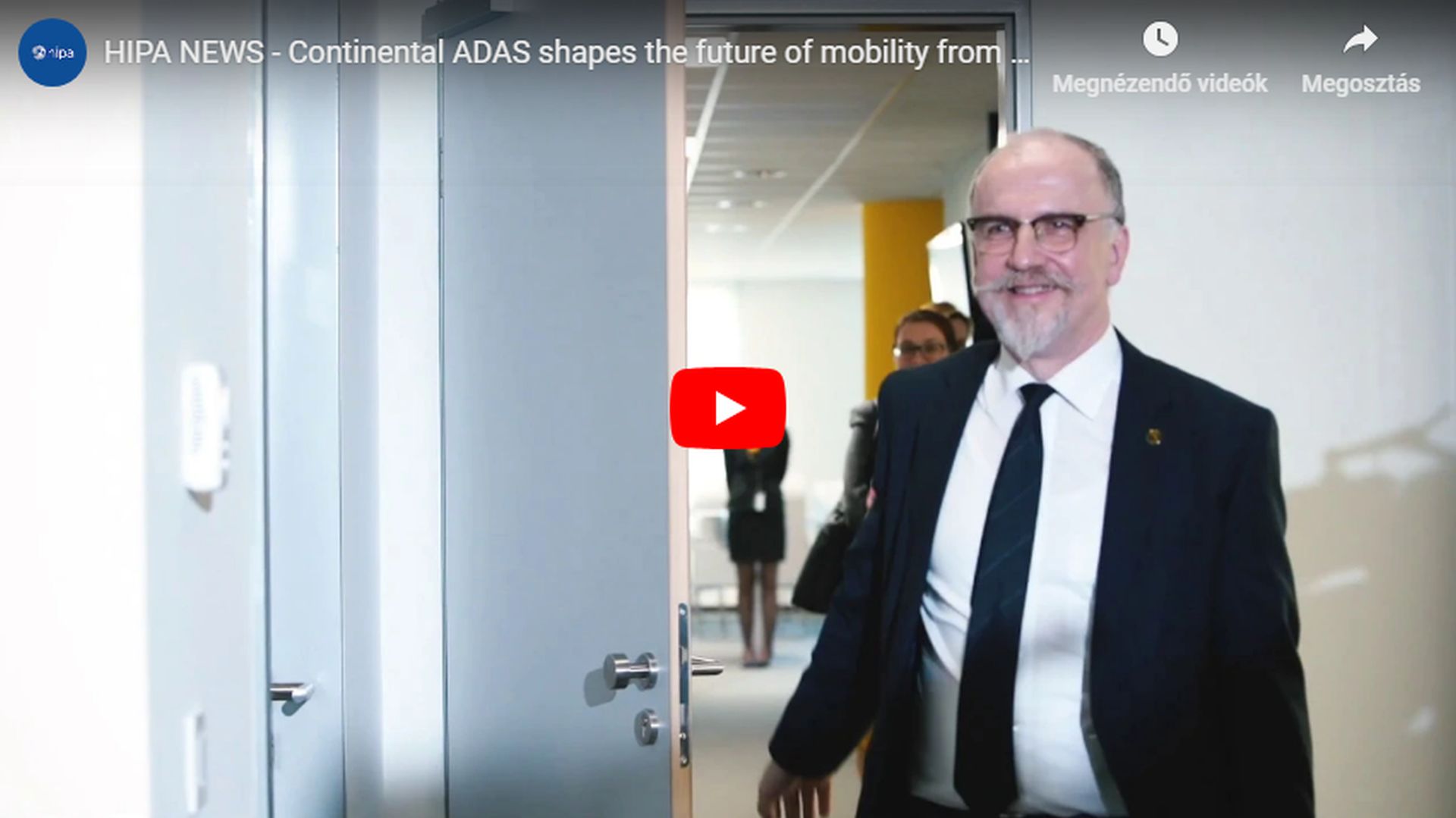
Continental develops driverless car technology from new Budapest office - VIDEO REPORT
2019. 02. 21.

Continental, the globally dominant German giant company, has chosen Hungary to build its newest R&D centre for the development of self-driving vehicles. Integrated into the global network of the business branch for advanced driver assistance systems (ADAS), the centre is involved in the examination, development and testing of options for the analysis and improvement of AI-based deep machine learning. Thus, the new unit, employing 100 software and hardware experts, will soon shape from Budapest the future of partly or entirely self-driving technologies based on real-time software applications of critical safety.
Going back to a tradition of over 100 years, Hannover-based Continental AG has grown from a tyre manufacturing business into one of the 5 largest TIER-1 suppliers in the world. The group's importance in the automotive industry is clearly highlighted by the fact that it played a key role in the technological development of hybrid drive systems in 1997. Listed at the Frankfurt Stock Exchange, the Continental group's total turnover for 2018 is expected to reach EUR 44.4 billion. Currently, the group has more than 244,000 employees in 61 countries.
Continental started its business in Hungary back in 1991 and, thanks to constant expansion, it has evolved into a factor of strategic importance for the global giant. With a total of 7 manufacturing units in 7 cities, all 5 divisions of the group are present in Hungary. The units in Makó, Nyíregyháza, Szeged and Veszprém are involved in manufacturing operations; in addition, the German giant has been using R&D capacities in Veszprém since 2003. Employing some 8,000 persons locally, the group considers Hungary as a strategic partner and brings more and more technological and development processes here.
Continental's business branch for advanced driver assistance systems (ADAS) has been using machine learning and neural networks results for years. Intelligent vehicles must know how other participants in the surrounding traffic will react and behave. Decisions cannot be based on a single object or sensor in complex driving situations. Methods based on deep machine learning provide assistance for solving such complex situations at various levels including ambient sensors, driving strategy and actual vehicle control.
The inauguration of the Budapest Deep Learning Competence Center represents a major milestone on Continental's road towards fully automated driving. Each component of a partly or entirely self-driving system must be separately designed and then organically integrated. In addition to developing deep machine learning methods, the Budapest-based ADAS centre studies such special fields as application and integration, substantially reducing the period between the stages of development preparation and product planning. The new solutions can be readily built into specially equipped test vehicles to enable experts to obtain experiences under real conditions.
Related articles
Sector articles
Feintool, a Swiss-owned leader in precision electrical steel and formed steel components manufacturing, is investing EUR 34.1 million to expand its Tokod facility in Hungary’s Esztergom district. The project will add 6,740 square meters to the existing plant, wi...
2024. 12. 17.
Automotive #AutomotiveChinese electric car manufacturer BYD first Hungarian Suppliers' Forum in Budapest attracted more than hundred domestic companies. At the two-day event, organised by HIPA Hungarian Investment Promotion Agency, Minister of Foreign Affairs and Trade Péter Szijjárt...
2024. 10. 16.
Automotive #AutomotiveSMR Automotive Mirror Technology Hungary Bt., a Motherson Group company, has announced to implement a EUR 33.3 million investment in Hungary. The Indian automotive supplier’s development aims to expand production and logistics capacities and install automation a...
2024. 06. 06.
Automotive #Automotive